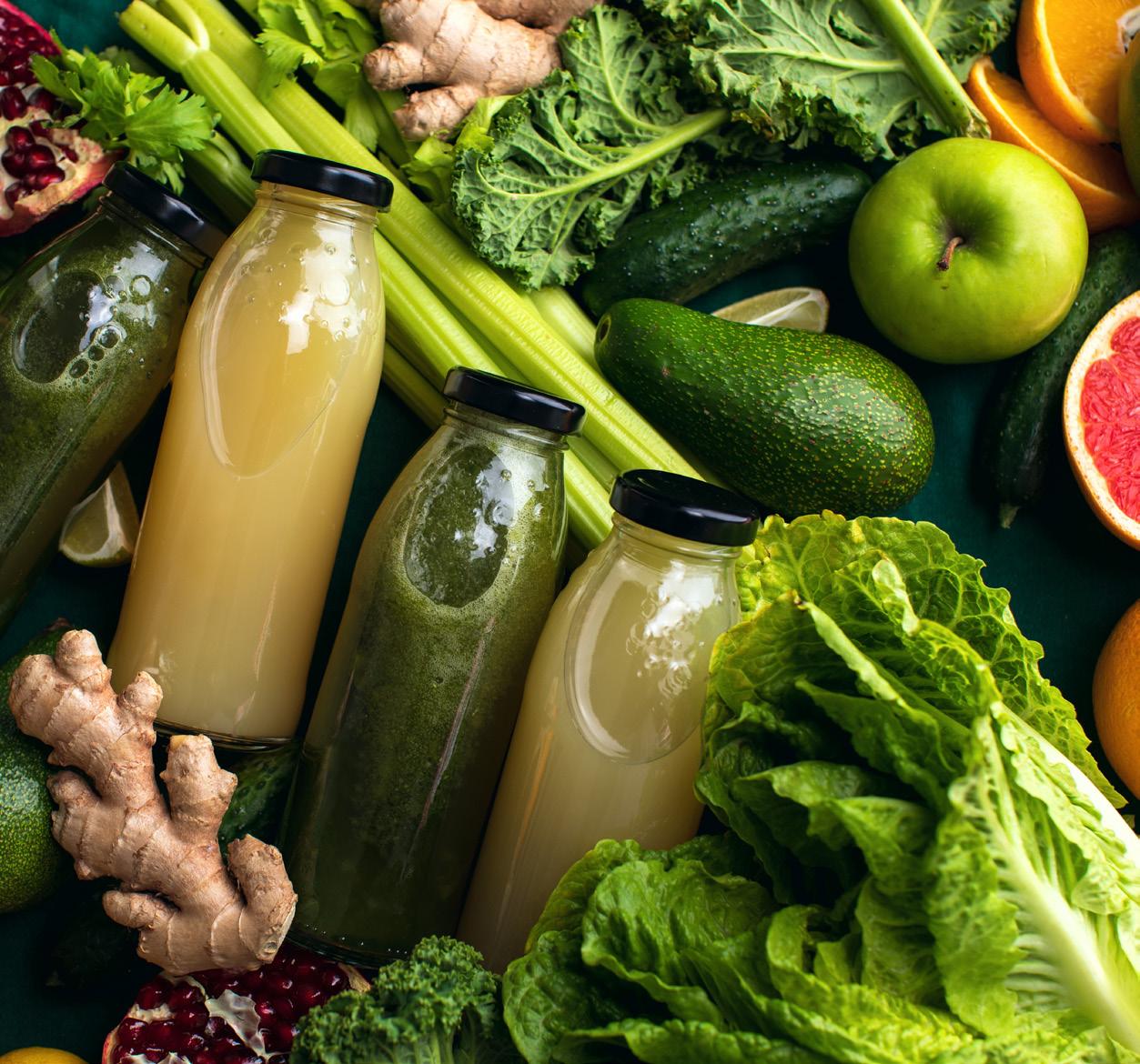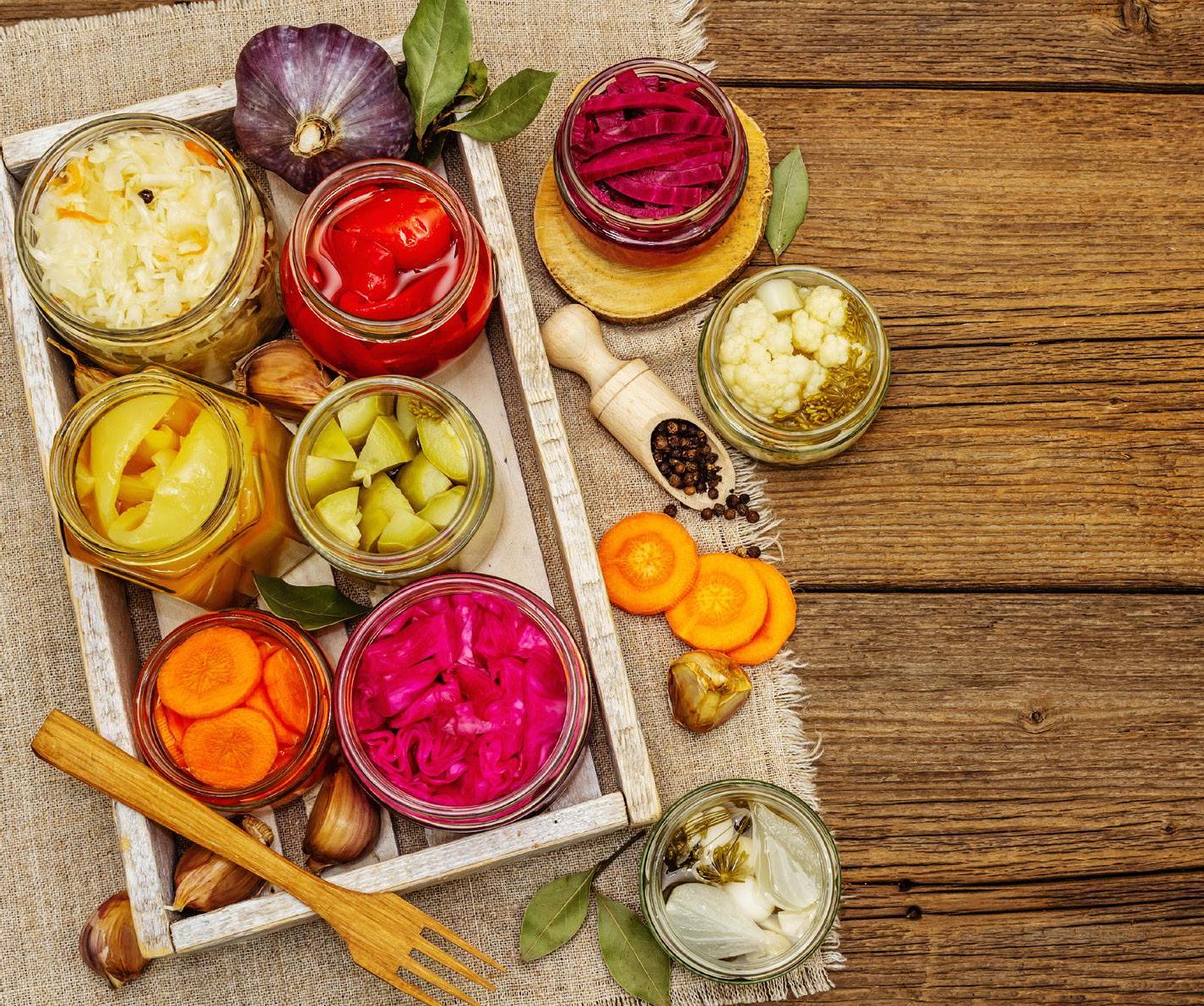
3 minute read
Key takeaways
• Take the hassle out of healthy living: Consumers want to improve their eating and drinking habits in an attempt to stay fit and active until later in life. At the same time, they can often struggle to stick to dietary plans. This means that any better-for-you products must be deemed compromise-fee.
• Provide the story behind the product: Consumers want to know the story-behind the products they purchase for safety and quality purposes. This means that brands should use story-based marketing to educate consumers on issues such as the country of origin, supply chain and production processes behind brands.
• Launching functional products that minimise the risk of disease and illness: Consumers are taking a greater interest in functional products that help boost the immune system. This creates the opportunity to educate consumers about different ingredients and the associated health benefits. Any related claims must be deemed credible.
• Ensure plant-based products are deemed compromise-free: Consumers want to reduce their intake of meat and dairy but can be conscious about the taste and texture of plant-based products. As such, it is crucial that plant-based products mimic the experience of eating and drinking animal produce from a taste and texture perspective.
• Offer taste and nutrition without the trade: Consumers want products that offer moments of indulgence that do not conflict with wider health goals. This is driving demand for better-for-you snack products that are high in good ingredients and low in bad ingredients that are deemed guilt-free and conveniently nutritious.
• Streamline ingredient lists: Consumers want reassurance that ingredients used in products are real and authentic and offer nutritional value. Products also must be chemical free. Brands should look to streamline ingredient lists where possible, focusing only on the use of tried and trusted ingredients.
• Challenge sensory perceptions: Consumers like new and experimental flavours that enhance the premium credentials of products and highlight their good taste and sophistication. Brands should look to challenge sensory perceptions by launching unusual flavours, hybrid flavours, and flavours from around the world.
• Highlight sustainability credentials along the whole of the supply chain: As consumers make changes to their diets to lead a more sustainable lifestyle, they will want brands that mirror this outlook on life. This means that brands need to demonstrate sustainability credentials along the whole of the supply chain.
• Develop customised solutions for nutritional goals: Consumers want customised products that are designed to deal with their specific health needs. When launching such products, it is crucial that ethical issues are considered, such as the type of information that consumers receive.
• Offer genuine innovation on foodservice menus: The foodservice channel will slowly recover throughout 2021 and it will be important that physical outlets offer genuine innovation to get people back inside. This can be done through leveraging experimental flavours with sustainability credentials.
Surveys used in this report
• COVID-19 survey 2021 (7,000 respondents)
• Stress and Sleep Management survey 2019 (6,000 respondents)
• Stress and Sleep Management survey 2020 (6,000 respondents)
• Immunity survey 2019 (6,000 respondents)
• Immunity survey 2020 (6,000 respondents)
• Meat and Plant-based protein survey 2020 (6,000 respondents)
• Flavours, Textures & Colours survey, Q3 2020 (11,000 respondents)
• Sustainability survey 2019 (6,000 respondents)
• Sustainability survey 2020 (6,000 respondents)
• Personalized Nutrition survey 2020 (11,000 respondents)
• Foodservice survey 2020 (11,000 respondents)
FMCG Gurus: Top Trends in Europe
For more information, please contact info@fmcggurus.com
Powered by:
FMCG Gurus provides market research and insight into consumer attitudes and behaviours across the food, beverage and supplement markets around the world.
Brought to you by:












